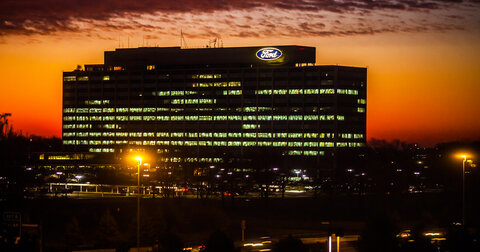House committee raises national security concerns with Ford partnership
Rep. Walberg of Michigan signs on to letter worrying that Ford will take a back seat to Chinese company CATL
“We are concerned that Ford’s partnership with a Chinese company could aid China’s efforts to expand its control over United States electric vehicle supply chains and jeopardize national security by furthering dependence on China,” reads part of a Sept. 1 letter from members of the House Energy and Commerce Committee to Jim Farley, CEO of Ford Motor Co.
In two months, the chairs of three U.S. House committees have written letters to Farley regarding the partnership between Ford and CATL for BlueOval Battery Park, an electric vehicle battery facility in Marshall.
Twice the Sept. 1 letter refers to CATL as wholly-owned by its Chinese parent company. Over in the Big Rapids area, Gotion used the same language, “wholly owned,” to describe its ownership by a Chinese firm in a filing with the U.S. Department of Justice.
Among the signatories to the letter was Rep. Tim Walberg, R-Tipton. Walberg was the only member of Congress from Michigan to sign it.
Last week, Gov. Gretchen Whitmer said in a policy address that Michigan should reduce its reliance on Chinese goods, even as she touted the forthcoming Gotion and CATL facilities.
The House Energy and Commerce Committee, though, sees the CATL partnership at BlueOval Battery Park as bringing on that dependency. The committee cites a New York Times report that Ford will be licensing technology from CATL, not creating it.
“We seek to learn more about whether this partnership, and others like it, will potentially exacerbate our reliance on China,” the letter read. “Should China gain control of domestic electric vehicle production, the United States would be exposed to serious national security risks at a time of escalating geopolitical tensions.”
CATL describes the Ford partnership as a “global strategic cooperation” to manufacture batteries in China, Europe and North America.
“The two companies plan to leverage their respective strengths to jointly explore new business opportunities worldwide,” read a July 2022 CATL press release announcing the partnership. “In addition to supplying (lithium iron phosphate-based cell-to-pack) batteries to Ford, CATL intends to actively cooperate with Ford with respect to other battery technologies.”
The letter gives Farley a Sept. 18 deadline to respond to five questions.
Among them: “Did Ford consider making a similar investment in a partnership with a non-Chinese company? If so, why did Ford ultimately decide to partner with CATL? If not, why did Ford not consider other partners?”
Michigan Capitol Confidential is the news source produced by the Mackinac Center for Public Policy. Michigan Capitol Confidential reports with a free-market news perspective.


 Congressional panels investigate Ford’s ties to Chinese company
Congressional panels investigate Ford’s ties to Chinese company
 Ford halts work at Marshall site, but state keeps spending
Ford halts work at Marshall site, but state keeps spending
 Report: Whitmer’s allies target opponents of Marshall battery plant
Report: Whitmer’s allies target opponents of Marshall battery plant